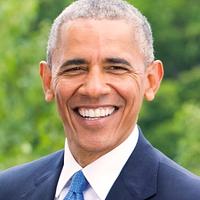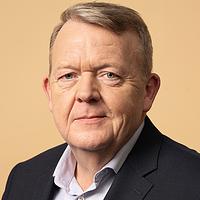Good evening, everyone. On behalf of Michelle and myself, welcome to the White House. And welcome to this very special dinner as we celebrate the great ties and longstanding friendship between the United States and our five Nordic partners. (Applause.)
Please join me in welcoming President Niinistö and Mrs. Haukio of Finland. (Applause.) Prime Minister Solberg and Mr. Finnes of Norway. (Applause.) Prime Minister and Mrs. Löfven of Sweden. (Applause.) Prime Minister and Mrs. Rasmussen of Denmark. (Applause.) And Prime Minister Jóhannsson and Mrs. Ingjaldsdottir of Iceland. (Applause.)
Now, we all know that our Nordic friends share a pride in their common Viking heritage. But I think we can all admit that the Vikings could be a little rough. (Laughter.) They didn’t always have the best manners at the dining table. (Laughter.) Their outfits were not always appropriate. (Laughter.) But times have changed, and tonight, our Nordic friends are much better behaved. (Laughter.) We are honored to have you here. And as you can see from our décor -- winter is coming. (Laughter.)
This evening, we have three toasts. So I’m going to be brief. And I don’t want things to get out of hand. One of the great Old Norse poems -- the Hávamál from Iceland -- offered advice on how to welcome a guest -- sort of like a Miss Manners for Vikings -- (laughter.)
Less good than they say for the sons of men
Is the drinking oft of ale
For the more they drink the less they can think
And keep a watch o’ver their wits. (Laughter.)
Good advice. It's perhaps easier said than done. It is true that our Nordic friends have a reputation today, unlike the past, for modesty and propriety. But don’t let them fool you. In these Nordic countries, things actually can get a little wild. I understand that in Norway, for example, one of the big hits on TV is “National Firewood Night.” (Laughter.) This is true. A video of logs burning for hours. (Laughter.) And hours. And hours. That's crazy. (Laughter.) Another show involved a video camera being strapped to the front of a train, so viewers could watch the rails -- for seven hours. (Laughter.) This sounds like riveting entertainment. (Laughter.)
So we’re not going to do anything that crazy tonight. (Laughter.) But we are grateful for our friendship with the Nordic peoples -- even if we do sometimes get a little jealous about how perfect they seem to be.
If you’ve visited any of these Nordic countries, everything is orderly. Everything is clean. Everybody is well-behaved. It even prompted a best-selling book called, The Almost Nearly Perfect People. But there were some shockers. Apparently, Nordic countries can sometimes get into heated arguments about which country is happiest. (Laughter.) They also do get into arguments about who has the better hockey players -- until America steals them away. (Laughter.) And they also have arguments about who has the honor of being the true hometown of Santa Claus. So these are fierce debates that take place among our Nordic friends. (Laughter.)
But our work today actually does remind us of why we so value our Nordic partners so much. In each other, we find those who we work with in pursuit of common values that we cherish the most. We stand together so that citizens can live in security and peace. We labor so our economies can create opportunity where prosperity goes -- not just to the top, but for the many. Together, we’re on the forefront of the fight against climate change, to preserve our glaciers, our fjords, to protect indigenous peoples of the Arctic. And in our own countries and around the world, we stand for the dignity and equality of all people.
And many of our Nordic friends are familiar with the great Danish pastor and philosopher Grundtvig. And among other causes, he championed the idea of the folk school -- education that was not just made available to the elite but for the many; training that prepared a person for active citizenship that improves society. Over time, the folk school movement spread, including here to the United States. And one of those schools was in the state of Tennessee -- it was called the Highlander Folk School.
At Highlander, especially during the 1950s, a new generation of Americans came together to share their ideas and strategies for advancing civil rights, for advancing equality, and for advancing justice. We know the names of some of those who were trained or participated in the Highlander School. Ralph Abernathy. John Lewis. Dr. Martin Luther King, Jr. They were all shaped, in part, by Highlander and the teachings of a great Nordic philosopher -- and they ended up having a ripple effect on the Civil Rights Movement, and ultimately on making America a better place. We would not have been here had it not been for that stone that was thrown in a lake and created ripples of hope that ultimately spread across an ocean to the United States of America. And I might not be standing here were it not for the efforts of people like Ella Baker and others who participated in the Highlander Folk School.
So that's just one, small measure of the enormous, positive influence that our Nordic friends have had on our country. And it's part of the reason why we so value their friendship. I've said before, and I will repeat, they punch above their weight. And their values, their contributions not just to making their own countries function well but making the whole world a better place makes them one of our most valuable partners everywhere in the world. And we are very grateful for the outstanding work that they do.
So I propose a toast. To the friendship between us and the values that we share. May our nations keep standing together and bending that arc of the moral universe in the direction of justice and peace and equality for all. Skål! Cheers!
And with that, I want to welcome Prime Minister Jóhannsson of Iceland, to be followed by Prime Minister Rasmussen of Denmark. (Applause.)

